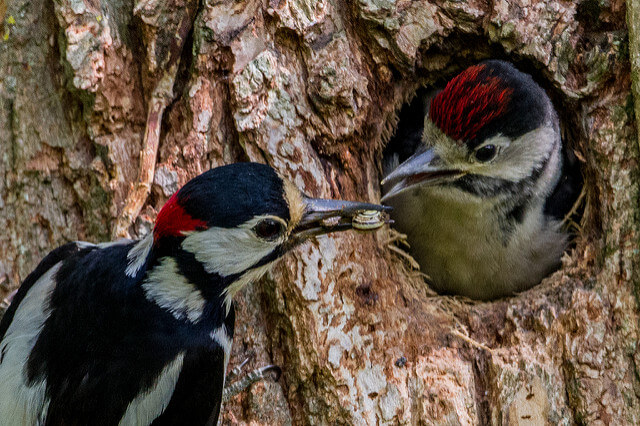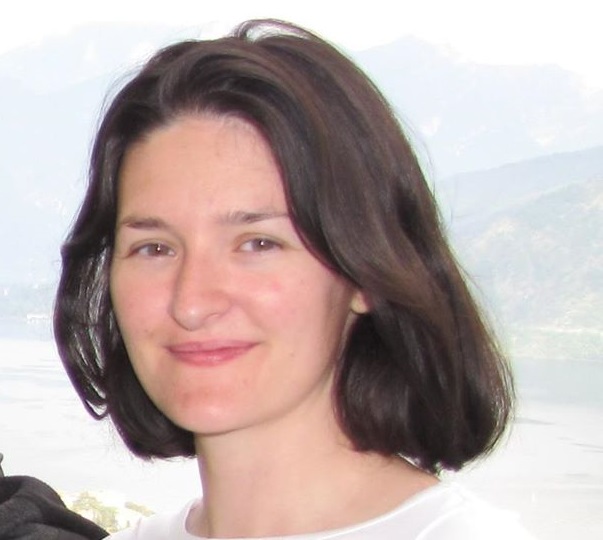
How do you become a nature reserve officer?
Jenny MacKay is Reserves Officer for The Wildlife Trust for Bedfordshire, Cambridgeshire and Northamptonshire. The Trust manages 128 nature reserves (covering 2,400 hectares of land) for the benefit of people and wildlife in the UK. It also works to make these wildlife havens bigger, better and more joined-up – vital to help wildlife to adapt to a changing climate. By gathering valuable information about wildlife and working with other landowners the Trust also monitors and safeguards wildlife beyond the boundary of its reserves.
WHY DO YOU HAVE A CONSERVATION JOB?
Because it’s fun! Most days you come home feeling like you’ve made a difference, and really contributed the wildlife being better in your area.
I was always interested in being outdoors. When I was young my Dad explained all the plants and animals we saw and told me stories about them.
WHAT’S IT LIKE BEING A RESERVES OFFICER FOR THE WILDLIFE TRUST FOR BEDFORDSHIRE, CAMBRIDGESHIRE AND NORTHAMPTONSHIRE
Being a Reserves Officer is everything to do with the management of the 20 nature reserves which we manage out of our Cambourne office. These are great places for wildlife, so there is something special about each site that needs managing.
There are two aspects of managing sites – the habitat and the visitor access. Habitat could be grassland, wetland, woodland etc. For the access management there’s the footpaths, signs and gates alongside the health and safety of a site.
I’m lucky because I go out and do the practical work – mend the gate, chop the trees or mow the grass. I often use volunteers, which I led, or I arrange for contractors to come in and do the work for us. This involves getting tenders, comparing prices, drafting contracts, and managing the work.
Within the Trust I help the fundraisers by developing projects for work that needs doing on site. I also support our communications team by writing blogs and tweets to promote what’s going on at the sites. This keeps our members informed whilst also trying to attract new ones. I also field enquiries from members of the public about our reserves.
WHAT’S THE BEST PART OF THE JOB?
Just getting to be out on these fantastic sites, and knowing that you’re making a difference. It’s a really diverse role and allows me to spend around 3.5 days per week outside, on the reserves, which can be rare in conservation. Coming back year after year and seeing the difference gives you a great sense of achievement.
I also really enjoy working with volunteers. I’m responsible for looking after our volunteers – which is how I started out – and I now recruit and train them myself. Seeing them develop, learn and go off into their conservation careers is really satisfying.
WHAT’S THE WORST PART OF THE JOB?
The frustrating thing to working for a charity is there’s never enough money for what you want to do. However, this can mean you have to be very efficient and creative with how you use resources to ensure make the most of them.
Conversely, you get great support from the community when you work for a charity and meet lots of people who kindly contribute and help. When I was a volunteer I helped to fundraise for the purchase of a new reserve, and the response we got locally was amazing.
Working for the Trust is also really friendly – we help each other out and get on really well. We’re all really close and working to the same aim. We’re about 90 staff in the Wildlife Trust for Bedfordshire, Cambridgeshire and Northamptonshire across three main offices.
WHAT KEY STEPS IN YOUR CONSERVATION CAREER HAVE YOU TAKEN?
At each stage I’ve followed what I felt I wanted to do – I haven’t had a master plan. From choosing Biology and Geography A-Levels to reading Biology at York University where I got involved in their conservation volunteer group. You have to really enjoy conservation it to want to spend your life doing it.
At university I had more interest in the ecology and environmental modules that were on offer. Importantly I joined the university conservation volunteer group. That got me interested in the practical side of conservation and working outdoors.
During my degree I also did a year working for Defra undertaking conservation research. This helped me to realize that I wanted something more practical for my career. Sometimes it’s important to know what you don’t want to do.
When I finished university I contacted the Wildlife Trust to see what volunteer opportunities were available. They offered me a spare place on their training scheme. This was 2004 and they were desperate for people then which is totally different now where it’s much more competitive.
I volunteered with the Trust for nine months. During this time I got all the training and key certificates including chainsaw, brush-cutter, pesticide and outdoor first aid. These are so important to have in my job, and can be expensive to fund off your own back. I also got more practical experience beyond the university group. Half of us on the scheme were offered part time contracts for a year, which then led to a full time role.
WHAT ADVICE WOULD YOU GIVE SOMEONE WISHING TO FOLLOW IN YOUR FOOTSTEPS?
I think it’s changed a bit over the years. We get lots of people coming to us with great qualifications that can’t find work and need more experience. There are also more specific qualifications towards reserve management and related field which mean there is lots of competition for this kind of conservation job.
Getting as much experience as you can is vital. Then when you come to apply for roles, and hopefully get interviews, you have things to talk about and can show that you’ve got the knowledge and the evidence of your experience to be one step ahead of the other applicants.
A good thing to do it to look at job descriptions for jobs you think you’d like to do, and even if you’re not ready to apply for the yet, look to see what kinds of skills and experience they want, and try and find ways of getting them. For example, if a job says you need experience of working with schools groups, you could volunteer at a local brownie or cub pack so you have things to showcase in a job application and interview.
Look at what skills they’re asking for, not what you think you need. It’s all in the job descriptions.
When people come to interview we sometimes do a practical session with them where we test their skills. For example, we’d take people out to our tools store and ask them to write a plan for how they’d erect a fence, outlining what health and safety aspects they’d need to consider. Sometimes we’d ask people to identify plants too.
The non practical elements of an interview are all based on the job description, so we’d be looking to get some more out of them beyond their application forms. We’re always looking for the evidence of how they’ve met the criteria we’ve listed in the job description. For example, if the role description is asking for experience of leading volunteer groups we might ask ‘what health and safety considerations you might have when taking a volunteer group out on a task’. You’d need to have examples and personal experiences to draw upon. If you’ve done it before, it should be easy.
WHAT’S YOUR FAVOURITE SONG?
Black horse and a Cherry Tree by KT Tunstall.
Featured images – Andy Morffew / Flickr


